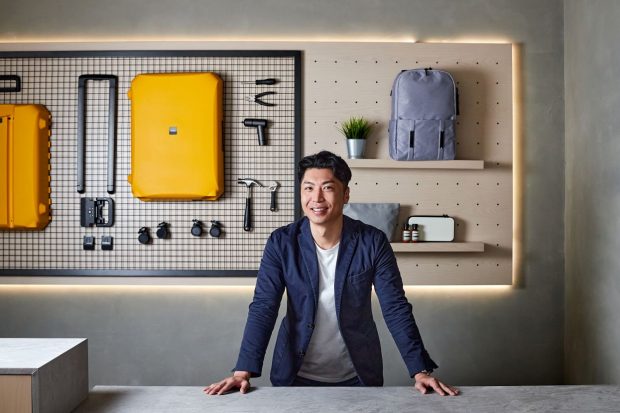
An Chieh Chiang, managing director of luggage brand Lojel, discussing traditional values, the changing needs of business travellers, and the rise of sustainability.
Lojel is a family-owned and managed company; how important is this heritage to you?
I grew up seeing how my grandfather and my father ran the company, and that definitely shaped who I am today and influenced me on many levels for how I manage Lojel. They almost never talked about their good-old-days and rather, they liked to discuss how we can innovate and improve our products and services. Their expectations are simple: focus on the needs of your customers. My father always said, it’s not difficult to build a business, but it’s difficult to run a long-lasting brand and this is something that has rooted in my mind. Lojel continues to focus on the needs of modern travellers, even if that means sometimes we need to destroy what we have built by our own hands. That’s the kind of commitment we have towards our customers.
READ: We Discover What All the Fuss is About at Singapore’s Ritz-Carlton Millenia
You currently sell in 15 countries; where are you seeing the biggest growth?
For the past five years, APAC has been a fast-growing region for us. In Indonesia, we have grown from around 30 points of sales to over 100. It’s one of the most populated countries in Asia, with an average age of population just under 30. We have a strong market presence there, but it didn’t come easy as we entered this market 30 years ago. Japan is also a very important market for us. We tripled our sales after a new partnership engagement with one of the biggest bag and luggage retail chains in Japan around three years ago. In the USA we have deployed a new development scheme, and are working with new types of experiential retail spaces such as Showfields and b8ta. Connecting with customers who share similar values and making sure our products and services make their lives easier is extremely important to us. As a brand, we want to channel comprehensive experiences that leave a lasting impression.
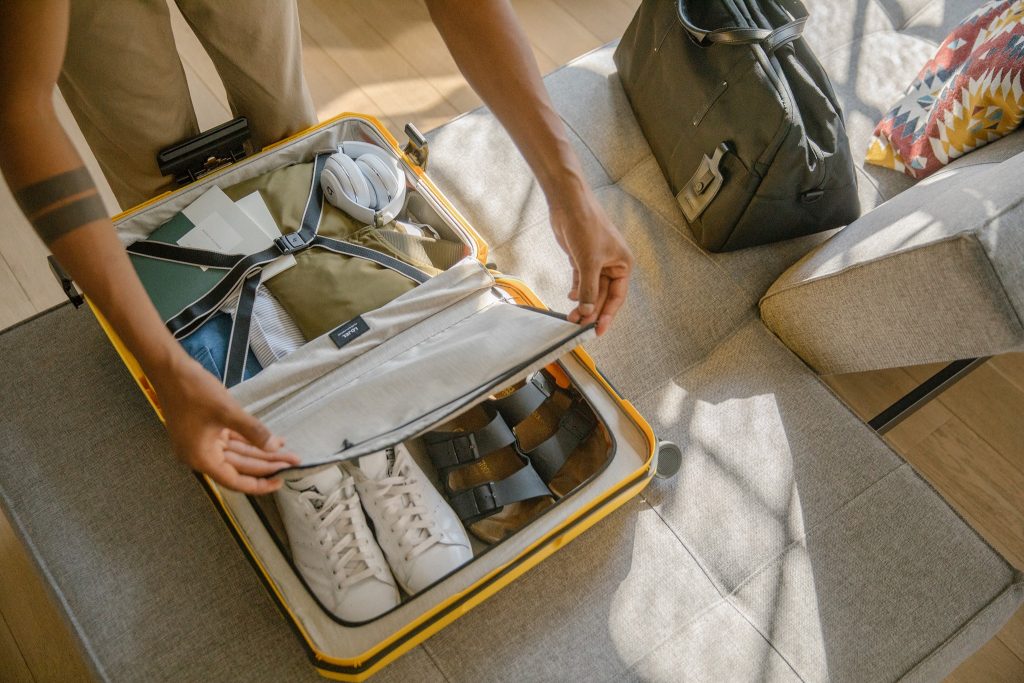
How is Lojel incorporating the needs of business travellers into its designs?
As a team of travellers coming from more than 10 different nations, a lot of inspiration comes from our own personal travel experiences. Taking inspiration from compact hotel rooms in Tokyo and New York, our Cubo collection is an example of how we used our own travel experiences to innovate and try to solve problems head-on. Its top-opening structure works perfectly in those tiny rooms when there is not enough space to lay the luggage flat-open on the floor. The easy-access front compartment also allows business travellers to remove their laptops easily.
Apart from product innovation, we’ve also elevated our service to our customers and introduced our Global Warranty, which is activated once your luggage is registered on our website. In the past, the process of getting luggage repaired was so painful that most people don’t even bother to get it done.
READ: We Put American Airlines’ Flagship First Through its Paces
We’ve made that easy by equipping a USID (Unique Serial ID) on the back of each luggage so no matter where you go, the guarantee travels with you. You won’t need to have any proof of purchase on hand, and you can also benefit from the repairs from our global network. We also host special experiences for our community from time to time.
Tell us about the Lojel Hub in Vancouver
Our Vancouver Lab as we like to call it is our hub for research, innovation, and also for spearheading our content. Our team there leads focus groups and other research initiatives to gather a range of insights that are shared with our team. It’s not just about understanding trends but looking more closely at the social and cultural dynamics that impact people’s lifestyle choices and behaviours. We also recently relaunched our Journal, which is dedicated to a “truth in travel” approach to storytelling. As an international brand, we work very hard to share many diverse voices and experiences, and to integrate those voices into our product development as well. Having offices in two very different parts of the world is an important way for us to truly embody one of our core brand values -diverse perspectives – in every aspect of what we do.
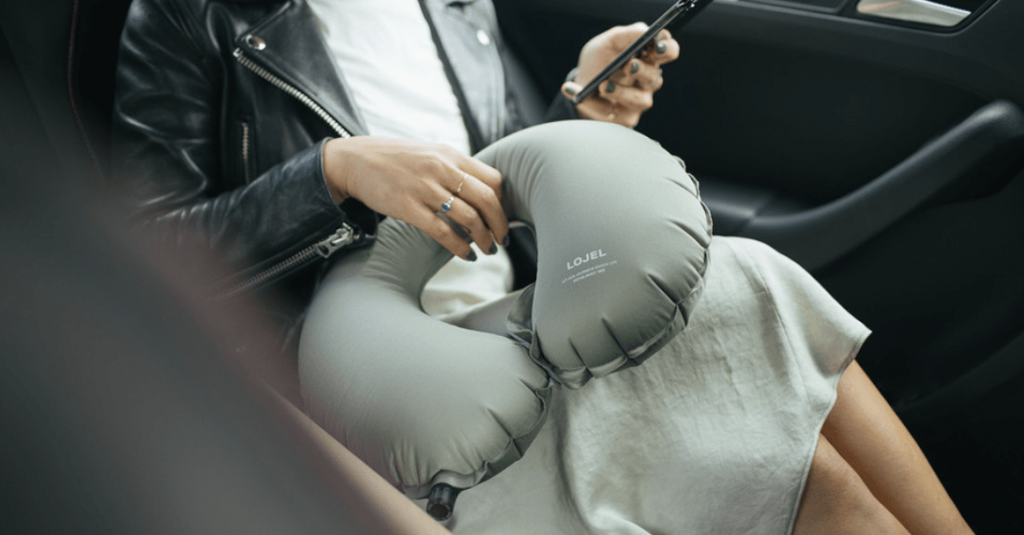
How have business travellers’ demands for luggage changed over the last few years?
In the past, business travellers preferred a more subtle look when going on a business trip, so traditionally, you probably only had the choice of black, grey, or blue for luggage. With travel becoming so accessible, business travellers have started to look for a business-casual look. Most of LOJEL’s ‘business travellers’ are either freelancers or people who work in the consulting, creative, fashion, or lifestyle industries. Mixing business with pleasure is a new trend and they often seek business-extended-personal trips to enrich their lives. Preferences towards luggage colours have become very different compared to not so long ago. Lojel has released many vibrant yet sophisticated colours to customers and we’ve had wide success on colours like Rose Pink, Warn Gray, or Yolk Yellow. They’re quite unusual but they look great. Now, in our latest pop-up store in K11 Musea Hong Kong, we are pushing a step further and offering customers a chance to customise carry-on luggage with their favorite colours.
With airlines charging steep prices for overweight luggage, taking a kilogram or two out of your luggage has become important. Our lightest ever cabin-sized luggage, Alto, is just two kilograms, making it convenient for either a long stay in LA or a two day trip to Shanghai.
READ: We Check-in at U Sathorn, Bangkok’s Urban Oasis
What trends are you noticing among travellers these days?
Personalisation is getting popular these years. Before, it was available with non-branded products. Nowadays, premium brands are moving towards hyper-personalisation to give customers room to make their personal statements. We’ve also received so many requests over the years to make a personalised luggage range. As a brand, we always try to listen to our customers so I’m really happy that we finally made it happen and launched it in our k11 MUSEA pop-up store.
In APAC, large-sized luggage used to be the most sold. However, as travel became more and more accessible due to the rise of low-cost airlines, people are buying more carry-ons. Travelling has also become a lifestyle that is very personal and spiritual for lots of people. In the past, APAC customers saved up their money to buy luxury bags; nowadays, more and more people are spending their savings on travel. They’re also travelling more often.
A thought I’ve been having recently due to the pandemic is ‘do we need to own luggage?’ Ninety-five percent of the time, your luggage is sitting in your storage room. Are there other solutions that could optimise your space and travel experience? Subscription is widely popular in Japan and you can subscribe to almost everything. Perhaps the path to a more sustainable future is to provide subscription services that are convenient and affordable?
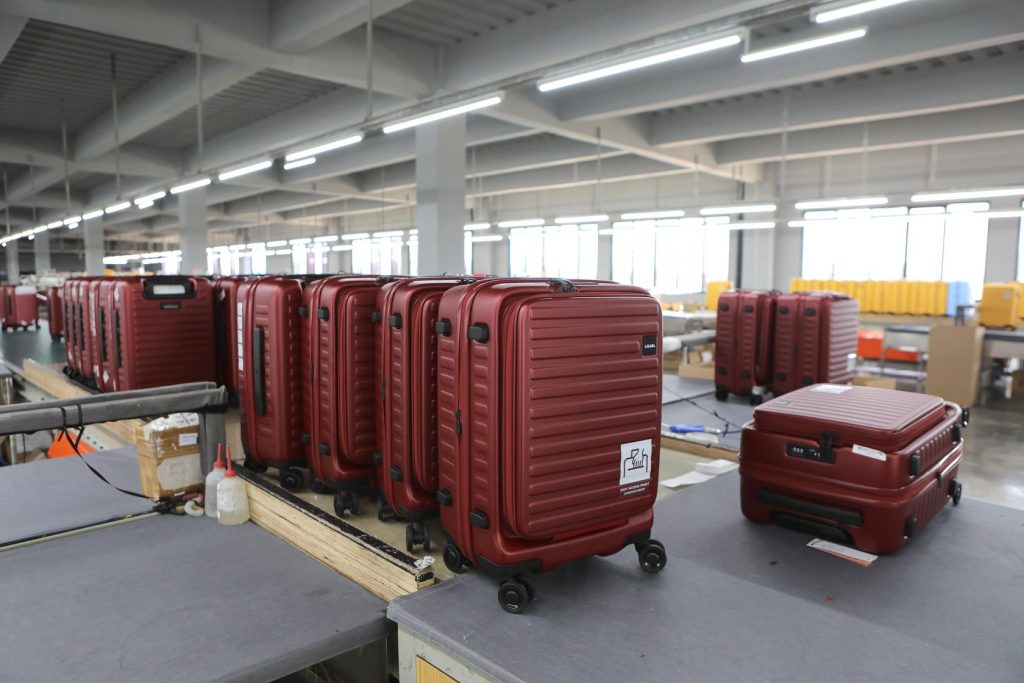
You’ve recently added new elements, including a beach collection and accessories. What direction is the company headed and which demographics are these new additions aimed at?
We are seeking a closer relationship with our customers. In the past, after a customer purchased luggage, it would probably be another five years until they came back for new luggage. By expanding our product range from travel-oriented luggage to more lifestyle-focused bags and accessories, we continue to accompany our community in every journey they make. No matter if they’re making a trip to the countryside, or heading to the beach, we hope the trust they’ve established in the brand will give them the confidence to continue the relationship.
Rather than demographics, our target audience is more based on those that share similar values, beliefs, and interests as us. These include a respect for the planet and local cultures, both with those who work with us and make our products, and those who buy them. Travel is an opportunity to learn and make a positive contribution to a community or place. We believe in travelling with humility, curiosity, and compassion. When travel is nearly impossible during the pandemic, we want to give inspiration to our community who would like to head out for outdoor activities. This prompted us to curate a beach collection from some of our existing products that were great for the beach, including our Dry Bags and Citybags. They’re both equipped with considered design to help you explore easily outside of Asia’s bustling cities.
READ: We Experience Air Astana Hospitality Between Almaty & Hong Kong
We’re increasingly seeing sustainability as a key component of many travel companies. What sustainability initiatives has Lojel undertaken?
Lojel is constantly evaluating the environmental and humanitarian impact we have with our manufacturing partners. We know we’re not perfect – the luggage industry still needs to improve – but we’re honest about where we are and are committed to making progress.
We started with durable, non-toxic materials and reputable production facilities. Our factory meets stringent environmental standards and has already received a Global Recycling Standards (GRS) certificate, which indicates all raw materials are effectively recycled to reduce environmental waste. We’re also working with them to move our production away from piece-dyed fabrics to solution-dyed fabrics, reducing the use of chemicals, water, and energy.
We’ve also created new designs to use leftover materials from the production of our bags. Our travel pouches and organizers are going to be made with this recycled material. Not only does this reduce waste in the production process, but it also creates travel accessories that have the same attention to design and quality of material that our suitcases do.
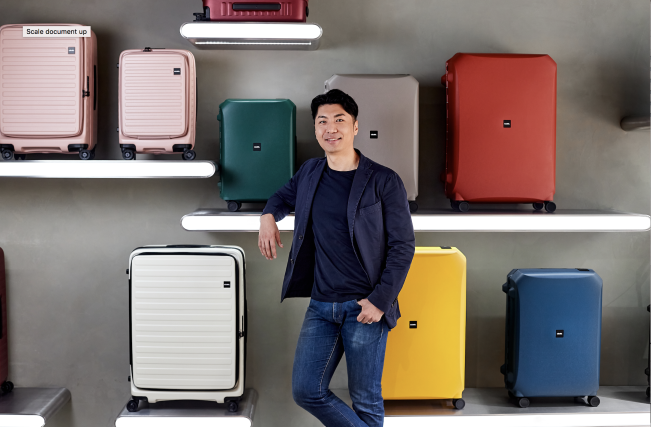
We have always made sure that our products are as durable as they could be, as we think the world is already over-consumed. However, it’s inevitable that luggage breaks down with time and wear. In an effort to increase the functional life of our products, we developed our Design for Repair initiative and made it a core value of our brand. Design for Repair is an approach that gives consumers tools to repair their luggage themselves — quickly and easily.
There are a lot of exciting projects that we are incubating internally right now. What I can reveal is that sustainability is going to be placed at the core of our brand value. It’s not about greenwashing, it’s about being future-proof.
A lot of luggage companies are doing smart bags. Will Lojel be looking to incorporate technology into its future cases?
Although we have all the accessibility to incorporate those related technologies, we have strict criteria to evaluate whether a bag is ‘smart’ or not – putting a power bank in the bag just isn’t enough for us. Sometimes innovation is not just how you innovate the hardware, but also your business model. This is where we place our focus now, especially during the time of COVID-19. I do believe that it’s only a matter of time until luggage and bags will be able to document your trips and upload this data to clouds as we progress in this internet era.
READ: Is This the Future of First Class?
Have you seen any differences in what APAC travellers want and what those in other parts of the world expect?
Backpacking isn’t as popular in APAC as it is in regions like North America or Europe. People usually opt for cabin size luggage rather than a backpack during short stays. In terms of how customers in the east vs west select luggage, we see that travellers in the west focus on the functions of the luggage; they look for luggage that can serve multi-purposes. In APAC, function is still important but aesthetics are just as important, if not more.
Western customers see luggage/travel bags more like a commodity and they’re not as attached to brands, compared to APAC customers. In APAC, our experience is that customers are brand-sensitive since the well-known brands are perceived as “high-quality”. I think the reason is that luggage and travel bags are seen as ‘technical gear’ in which durability plays an important factor so consumers tend to be more conservative when it comes to buying new luggage and have a habit of sticking with “traditional brands”, or brands that they have heard of through recommendations. We also see ourselves being embraced by customers in the US faster than in APAC countries. Most of our customers in APAC are through referrals and word of mouth.
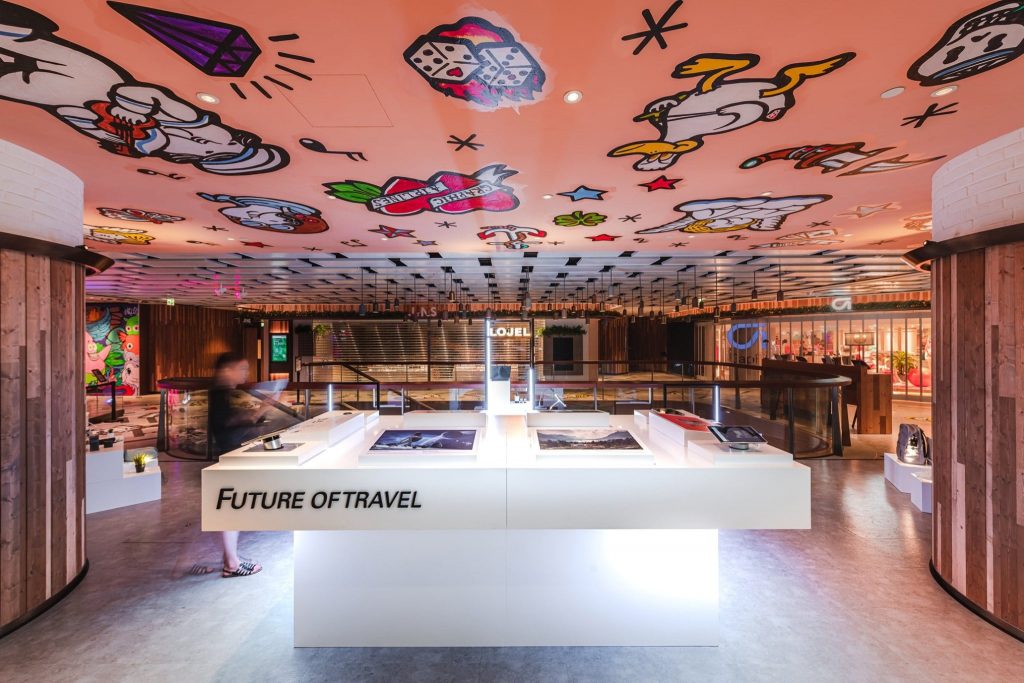
Another difference is sustainability. It’s a burning topic in the world, especially in western countries where big brands and small-medium companies are taking initiatives. In APAC, eco-conscious brands are still more of a niche. If we talk about the actual purchase, most customers still value the design and price more than the sustainability aspect. Having said that, awareness in APAC is increasing and most consumers believe brands have to take care of the planet so I believe Asia will pick up if more and more global brands join forces to promote this initiative.
In terms of repairs, some interesting experiences we had says that western customers are handier. They’re willing to do repairs on their own if the brand can provide the replaced parts for them. APAC customers still prefer to bring the luggage to the store to get it repaired. They don’t mind waiting for extra days if that means brands can fix the problem for them.
READ: We Review Cathay Pacific’s Business Class on the Airline’s Sole Africa Route
You recently launched a concept store in Hong Kong and plan a pop-up store at K11 MUSEA this summer; what products should we look out for at this event?
Our limited edition Voja Duo in carry-on size – it’s our first customisable product and it offers different vibrant colours for the top and bottom luggage shell. As a brand, we always try to listen to our customers, and we have gotten so many requests for personalised luggage over the years. I’m happy that we finally made it happen and launched it in our k11 MUSEA pop-up store.
Check Out Our Recent Mile High Club Columns
Benoit Verbaere on Creating the Airports of the Future
Qatar Airways’ Thomas Scruby on Maintaining a Network Through the COVID-19 Crisis
Jean-Michel Dixte on the Evolution of Hotel F&B After the Epidemic





